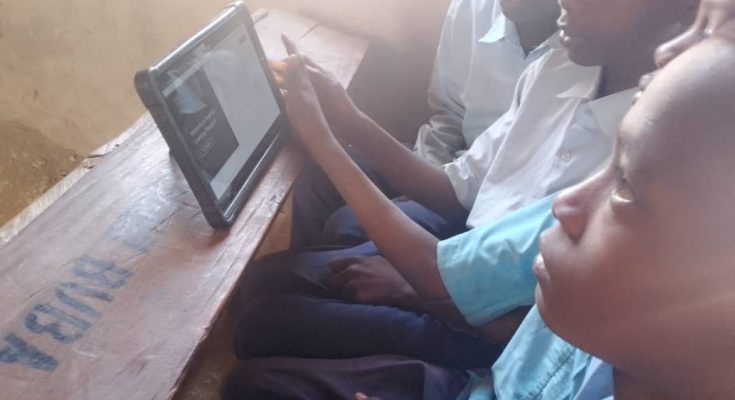

The United Nations Children’s Fund (UNICEF) has emphasized the importance of digital technology in the effective and efficient delivery of educational lessons, particularly at the basic education level.
This assertion was made by UNICEF Education Specialist, Bauchi Field Office, Abdulrahman Ado, during a one-day media dialogue held in Toro Local Government Area of Bauchi State to celebrate the 2024 International Day of Education.

UNICEF therefore urged the Bauchi State government, philanthropists, corporate organizations, and other well-to-do individuals in society to support child education by leveraging the availability of digital learning programs under the Nigeria Learning Passport (NLP) initiative to improve learning outcomes in the state.
He stated that the initiative, launched in Bauchi in 2022, aims to utilize digital technology to enhance learning outcomes in the state.
Abdulrahman Ado also called for proper monitoring of the program to ensure its success, stressing the need for periodic visits to schools to assess the usage of tablets and other digital learning gadgets provided.
The Education Specialist further urged the Bauchi State government to take ownership of the learning gadgets, reminding benefiting communities that the gadgets belong to them, not UNICEF.
According to him, “Sometimes, teachers think the Nigerian Learning Passport belongs to UNICEF, but no, it belongs to the Bauchi State government, and it is the responsibility of the state government to provide education for all learners.”
The UNICEF Education Specialist also emphasized the need to develop local content to complement the existing material. He urged the state government to establish a Nigeria Learning Passport studio and procure additional tablets and other necessary gadgets for digital learning.
However, Abdulrahman Ado observed that the number of tablets and projectors provided is insufficient, considering the number of schools and learners in Bauchi. He appealed to the state government to procure more devices to reach a larger number of students.
While commending the Bauchi government’s recent move to recruit additional teachers, he urged the authorities to use the Teacher Management Information System (TMIS) in the recruitment process.
He also highlighted the importance of digitalizing the Education Management Information System (EMIS), stressing the need to identify teachers who will supply the platform with relevant data.
“We are calling on the government to please use the Teacher Management Information System (TMIS) in recruiting these teachers that have been approved by the government,” the Education Specialist requested.
He also called for strengthening school infrastructure, including the provision of security and electricity, to ensure the safety of the gadgets and their effective utilization.
“We need to see the government committed in terms of resources so that we can increase the number of Nigeria Learning Passport users and maximize the opportunity available,” he said.
On her part, the Director of Planning, Research, and Statistics at the Ministry of Education, Ai’shatu Aminu, stated that almost all schools across the 20 local government areas of the state have been enrolled in the program, except for newly admitted students.
ALSO READ:Sokoto: Police begin enforcement of third-party vehicle insurance policy
She disclosed that the program currently has 1,110 tablets distributed across 55 primary and junior secondary schools, 15 IQS, and 40 conventional schools, with each receiving 22 tablets.
The Nigeria Learning Passport (NLP) is an online e-learning platform with mobile and offline capabilities that enable continuous access to quality education. It is highly flexible and adaptable, allowing states to quickly adopt the platform as their learning management system or use it to complement existing digital learning efforts.
The platform has been developed with a unique suite of online and offline functions to facilitate deployment in areas with poor connectivity—often locations where children struggle to access quality digital education, tools, and content.
It serves national curriculum content as well as global supplementary resources, including Open Educational Resources (OERs), to support learners and improve learning outcomes.
The Nigeria Learning Passport also serves as an educational model for early childhood education, primary and secondary education, adolescent skills development, and technical and vocational education. Each user has a personalized record of their learning history, which is unique to them. Additionally, the platform provides teachers and parents with tools and resources to support student learning.








